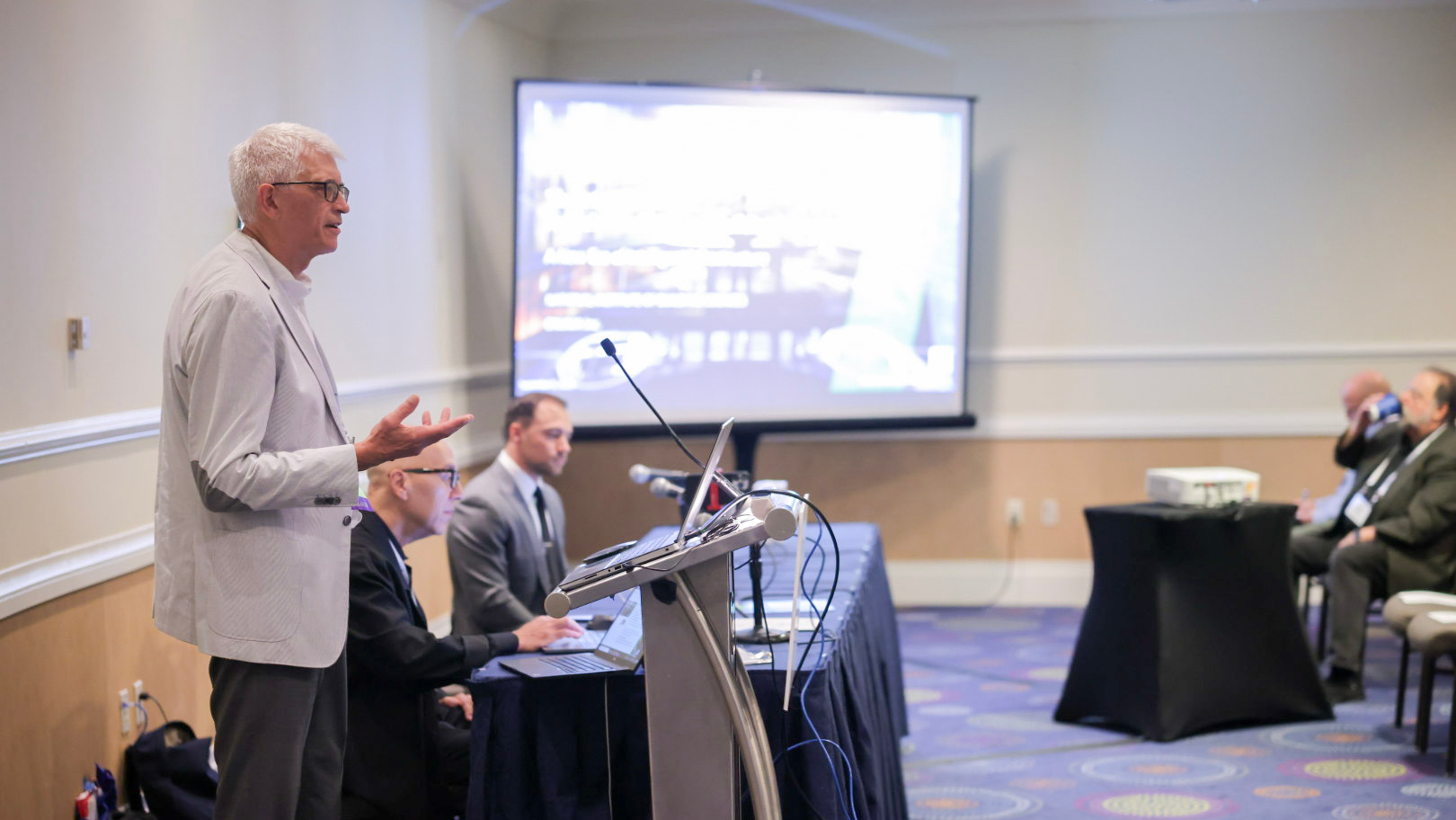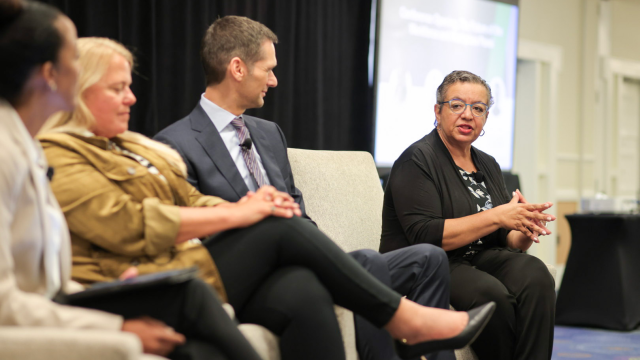The NIBS annual meeting – Building Innovation 2023 – saw hundreds of built environment professionals descend on the Washington Hilton in DC.
Educational sessions started Wednesday, September 6, and they covered four tracks: building performance and sustainability, resilience, technology, and workforce.
The conference concludes today.
Wednesday session highlights included:
- GIS-based Digital Twin Capabilities to Decarbonize the Built Environment
- The Intersection of AI and Building Sciences: A New Era of Intelligent Infrastructure
- A Retiring Facilities Management Workforce: Technology Strategies for Attracting and Onboarding a New Generation
- Deep Green, Market Rate, Net Zero: How ASHRAE’s New Global HQ Renovation Achieved All Three
- Designing for Our Future – Climate Forward Design
- BIM & Digital Twins: A Formal Position on Successful Integration for the AECO Industry
The Future of the Built Environment Workforce
Kicking off the conference was a panel that discussed the future of the workforce. Panelists included Nancy Novak, with Compass Datacenters; Peter Templeton, with the U.S. Green Building Council (USGBC); and Cheryl Lyman, with the Ohio Facilities Construction Commission (OFCC). Dr. Kimberly Jones, with Howard University and a member of the NIBS Board of Directors, served as moderator.
USGBC’s Templeton admits he probably reads a study each day about workforce.
“I’m always trying to evaluate things in the context of these conversations,” he said, mentioning the most valuable feedback comes from his team, who say retention comes down to engagement, pay and compensation, and work-life balance.
OFCC’s Lyman discussed bringing exposure to key topics in professional development programs.
“We encourage people to take advantage of the training,” she said. “We are also focusing on going back to fundamentals. We explain why we do things in meetings and offer opportunities for external professional development.”
When it comes to promotions, Novak said Compass Datacenters has a unique way of handling things.
“We focus on the ability to be collaborative, have humility, and ask good questions,” Novak said. “It’s not necessarily about ticking off certain boxes. It’s about using your community.”

The New U.S. National BIM Standard V4: What Is It, And How Do I Use It?
In a session announcing the soft launch of the National BIM Standard – United States Version 4, the panel covered the new, focused organization and sections of the standard.
Attendees also learned why having a U.S. Standard for building information modeling (BIM) is important and how it aligns with other international BIM standard efforts, such as ISO 19650 and the Industry Foundation Classes.
“September 6, a day we’ve been waiting for a very long time,” said John Messner, Chair, National BIM Standard – US Planning Committee and Architectural Engineering Professor with Penn State University. “We set this day many months ago, saying we wanted to release the next version of the National BIM Standard on this day, and we are.”
Messner was joined on the panel by Ralph Kreider, Associate Director, Berkeley Research Group, and TJ Meehan, with Cadd Microsystems.
NBIMS v4 is very different than our previous versions of NBIMS, Messner said.
“This isn’t just a new progression,” he said. “This is a new direction for the National BIM Standard. The challenge was how to develop clear, industry-focused standards and guidelines for facilities including buildings and infrastructure. There was lots of debate on language.”
The NBIMS workgroups still are working through some of the information and modules. A hard launch for NBIMS will be coming soon.
Advancements in Flood Resilience
Building Innovation attendees learned in the session, Advancements in Flood Resilience, that flooding is getting worse, despite our best efforts.
The nation’s annual flood losses roughly are doubling per decade and now cost $20 billion-plus a year.
In fact, John Ingargiola, with the Federal Emergency Management Agency, quoted a Zillow study that found 80 percent of homebuyers consider climate risks when buying a new home.
And while the nation’s flood data also evolves, so must our building codes and standards, many of which haven’t been updated in several years.
This becomes a land use issue.
“We’re not having the conversations that we need to,” said Chad Berginnis, CFM, Association of State Floodplain Managers.
Oregon State University Professor Dan Cox said he’s seen some interesting case examples and successes. He talked about a grocery store that appeared to have a plain storefront but looked like an elevated parking garage in back.
“So, there are solutions out there,” Cox said. “These are doable things for new construction or retrofit. I’m encouraged by some of the options out there.”
Building Innovation Continues Today
Today’s sessions begin at 8am EST with a keynote by Solomon Greene, Principal Deputy Assistant Secretary for Policy Development and Research for the U.S. Department of Housing and Urban Development.
NIBS also will announce the winners of the built environment awards. Follow the #BI2023 conversation on Twitter, Facebook, and LinkedIn for more.

